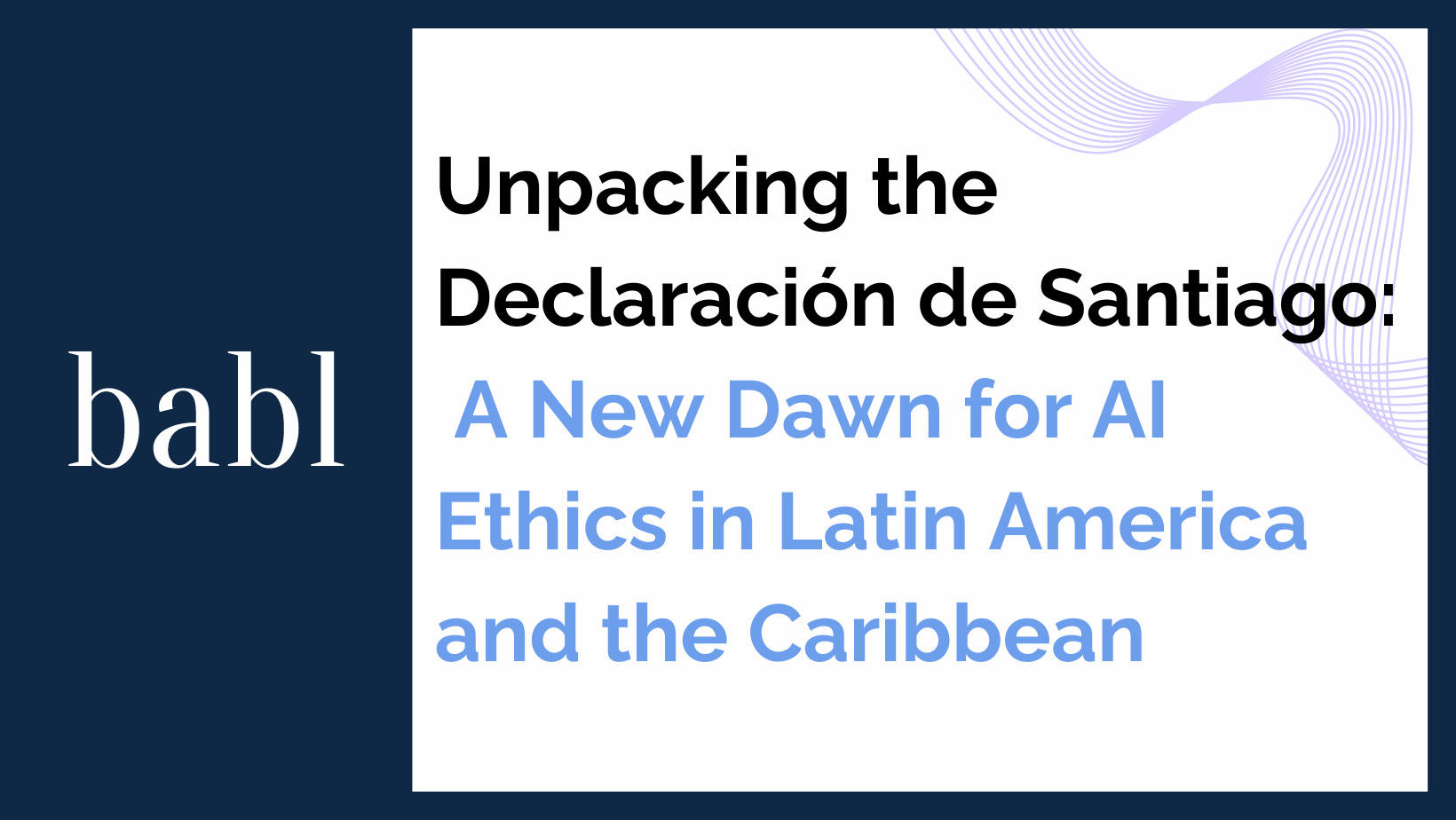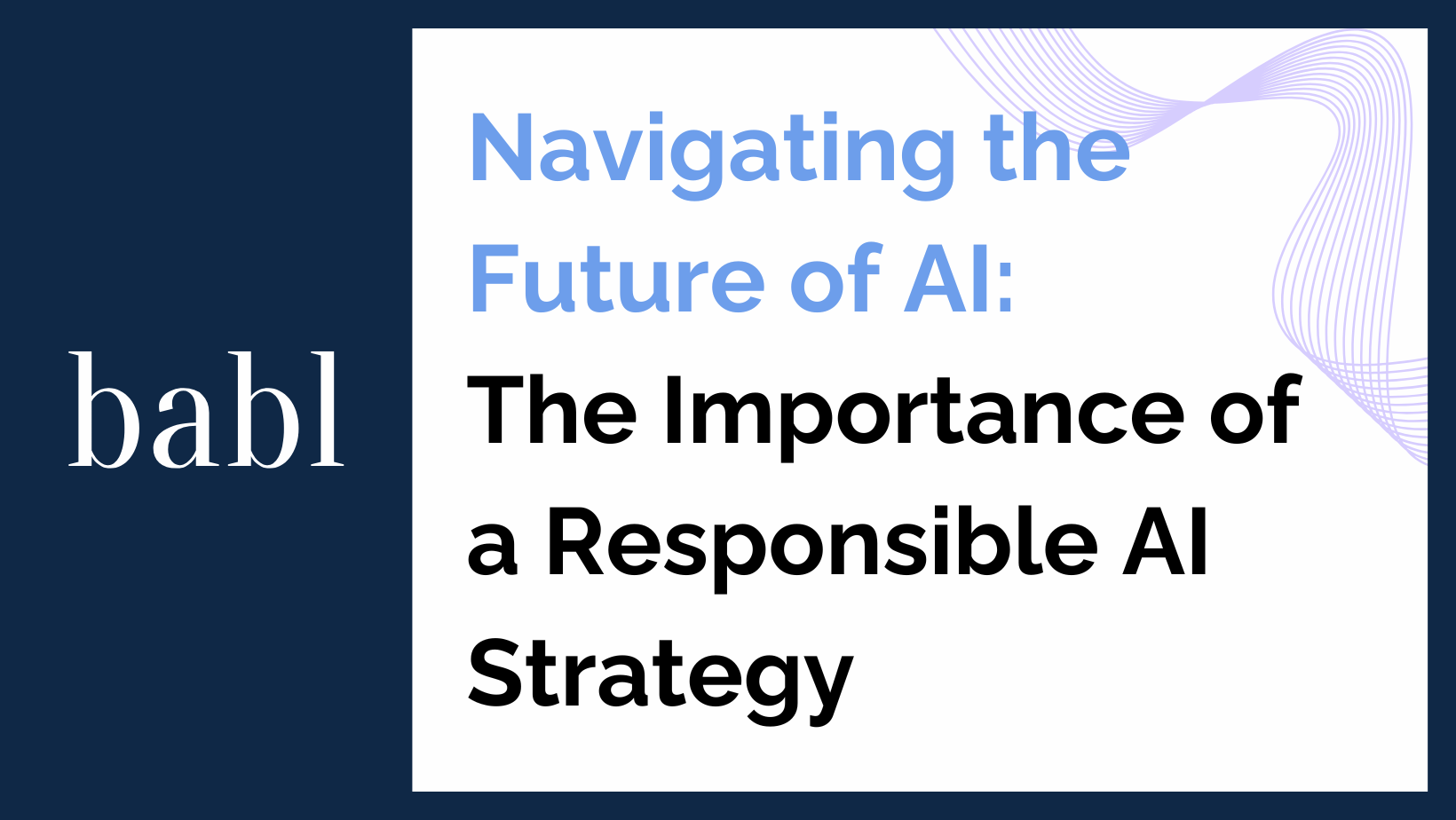In October 2023, Santiago de Chile became the epicenter of a significant movement in the realm of Artificial Intelligence (AI) as it hosted the landmark Ministerial and High-Level Authorities Summit of Latin America and the Caribbean. This pivotal gathering, which spanned over two days, was not just a meeting of minds but a clarion call for ethical AI across the region. The culmination of this summit was the “Declaración de Santiago,” an initiative aimed at fostering ethical AI development that resonates with the unique cultural, social, and economic tapestry of Latin America and the Caribbean.
Ethical AI: A Core Pillar for Regional Development
The Declaración de Santiago emphasizes the crucial role of AI in transforming development models across Latin America and the Caribbean. It recognizes the potential of AI to enhance productivity, inclusivity, and sustainability. However, it also addresses the dual-edged nature of AI technologies, which, while promising, pose significant risks to human rights and societal stability. The declaration identifies the urgent need for strategic planning, regulation, and regional cooperation to harness AI’s benefits while mitigating its risks.
Human Rights and AI: Ensuring Digital Integrity
A core component of the declaration is its staunch commitment to human rights, drawing heavily from the principles laid out by the United Nations. The signatories reaffirm their adherence to international human rights law, asserting that the rights safeguarded offline must also be protected in the digital arena. This commitment underlines the necessity of ensuring that AI technologies do not become tools of oppression or inequality but rather instruments of equity and justice.
Strengthening AI Governance through Regional Cooperation
The declaration warmly welcomes UNESCO’s Recommendation on the Ethics of AI, considering it a critical framework for international consensus on responsible AI usage. It calls for the establishment of an intergovernmental AI council for Latin America and the Caribbean, aiming to strengthen regional governance of AI technologies. This council would play a pivotal role in harmonizing AI policies across the region, ensuring they align with ethical standards and human rights protections.
Inclusive AI Policy Making: A Multi-Stakeholder Approach
Recognizing the multifaceted challenges and impacts of AI, the Declaración de Santiago advocates for a multi-stakeholder approach to AI governance. It highlights the importance of including diverse voices from public sectors, private sectors, academia, and civil society in AI discussions and policy-making processes. This inclusive approach is intended to ensure that AI development considers the diverse needs and concerns of all societal segments, preventing the reinforcement of existing disparities.
AI for Social Good: Bridging the Digital Divide
The signatories of the declaration commit to leveraging AI to bridge the digital divide and enhance democratic participation throughout the region. There is a strong emphasis on ensuring that AI technologies promote gender equity, cultural diversity, and empowerment of vulnerable groups, including indigenous peoples and Afro-descendants. These efforts are crucial in ensuring that the benefits of AI are shared broadly and equitably, contributing to the overall social and economic advancement of the region.
Sustainability and AI: Environmental Considerations
The Santiago Declaration also addresses the environmental dimensions of AI, advocating for sustainable practices in AI development and deployment. This includes the responsible use of resources, minimizing the ecological footprint of AI systems, and ensuring that AI contributes to sustainable development goals.
Facing Future Challenges: The Road Ahead
Despite the optimistic framework set by the Declaración de Santiago, there are significant challenges ahead. The implementation of such broad and all-encompassing policies requires robust legal frameworks, consistent funding, and effective collaboration among diverse stakeholders. Moreover, the rapid pace of AI development may outstrip regulatory efforts, necessitating agile and adaptive policy responses.
Conclusion: Influencing and Shaping Global AI Ethics from Latin America
The Declaración de Santiago marks a significant step forward in the ethical governance of AI in Latin America and the Caribbean. By foregrounding human rights and ethical considerations, it sets a benchmark for other regions grappling with similar issues. However, the true test will be in its implementation: transforming these high ideals into concrete actions that safeguard the rights of all citizens and ensure that AI serves as a catalyst for equitable development across the region.
In embracing this ethical framework, Latin America and the Caribbean are not just participating in global AI advancements but are also shaping the dialogue, ensuring that technology development aligns with their regional values and priorities. The path forward is complex and fraught with challenges, but with continued commitment and cooperation, the vision outlined in the Declaración de Santiago can lead to a just and prosperous future for all.
Need Help?
If you’re concerned or have questions about how to navigate the global AI regulatory landscape, don’t hesitate to reach out to BABL AI. Their Audit Experts can offer valuable insight, and ensure you’re informed and compliant.





